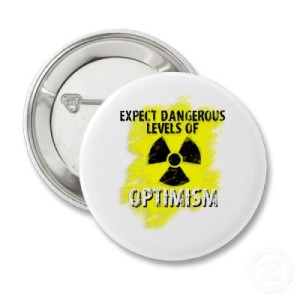Life experiences can be really tough at times. Take job search, career development or trying to grow your business as examples. For those of us who have firsthand experience in these adventures, this is a gross understatement. Cold-calling, networking, spending weekends at the office, earnestly looking for opportunities and challenges can make for some tough sledding! Add to this the fact that, at some level, it appears to be nothing more than an incredibly cruel numbers game. Keep plugging away until all of the stars line up, the Heavenly Bodies are in alignment, and you have success.
How can we promote serendipity (pleasant, unexpected surprises)? It would be nice if we could engage “Lady Luck” in this process, perhaps reducing some of the wear and tear on our psyches and increasing the likelihood of success before we run out of money, positive attitude, energy, or all three! Well, I have some good news – A British psychologist, Dr. Richard Wiseman, did research on the “luck” phenomena and developed a program to “improve your luck,” as described in his excellent book The Luck Factor – Changing Your Luck, Changing Your Life: Four Essential Principles. He presents some practical guidelines to improve your luck and experience Serendipity – better represented as realized opportunity – in all you do. By the way, there are 12 corollaries to his four key traits that are very helpful as well, but you’ll have to get the book to learn about them!
Let’s consider the four key traits of “lucky” people, as defined by the good Doctor, with an eye towards how they can be applied to our daily activities..
1. Lucky people maximize the results of chance opportunities. As a matter of fact, they even create them.
Everywhere you are, everyone you meet, every situation you encounter has potential. Bumping into an old friend at the grocery store, enhancing your use of Twitter, etc., or chatting with an acquaintance in the dentist’s waiting room could be your introduction to a totally new network of people and ideas. You can even create more of these activities by increasing your interaction with others at your place of worship, your neighborhood, LinkedIn groups, summer barbecues, etc. Be sure to hone your networking skills, however, or you are more likely to create an island for yourself where all those around you give you a wide berth to avoid being harassed. Learn to ask questions and be honestly interested in their answers. Lucky people aren’t all that lucky. They just have more opportunities for something to happen than most. Make those opportunities for yourself.
2. Lucky people listen to their intuition as well as to their logic.
The mind is not only a terrible thing to waste, it is also a terrible guide if you base your actions only on what “makes sense.” Wiseman found that lucky people were more open to hunches, more likely to listen to their “gut” as well as their reason. Be sure you don’t experience “paralysis by analysis” or make the “perfect the enemy of the good.” I like to call this my “Why Not?” Principle ™. If you don’t have an iron-clad reason not to move ahead, take another step. The world is full of individuals who engaged their intuition as well as their intellect, moving into new and at times uncertain, if not terrifying, territory to discover exciting opportunities. These actions, by the way, may not have been as much based on a logical analysis of the facts as they were founded on hunches. Lucky people will listen to their hunches as well as their logic, exposing themselves to opportunities that Mr. Spock would have never considered.
3. Lucky people have an expectation that things will work out. They cultivate a positive attitude.
It can be quite sad but is inexorably true. You can get up in the morning and decide you’ll have an unproductive, frustrating, nothing-but-trouble-day and everything that comes your way will affirm your opinion. Interestingly enough, if you decide to have a better day, not perfect but productive and opportunistic, the very same situations can provide some alternatives, suggest options, create opportunities. Does this mean that all you have to do is be positive and magic takes place? Nope, not even close! It does, however, mean that cultivating a positive attitude (called “Learned Optimism” by Dr. Martin Seligman in his book of the same name) can allow you to see situations that Eeyore would never identify. Look for the best in things.
4. Lucky people, when faced with negative situations, find ways to turn them into positive results.
Bad situations frequently have good alternatives hidden within them. The loss of a job or a key promotion may free you up to consider a career change or an adjusted business plan. When you don’t win, you can use the experience to be better prepared next time. Pay attention to your progress, even if you have not yet reached your goal. Dr. Seligman claims that you can acquire this ability if (like many of us) you are not born with it. He says that, just as individuals can develop Learned Helplessness (in other words, there is no sense in doing anything, it will fail anyway) they can acquire Learned Optimism (seeing the opportunity in unfortunate events).
In investigating the personality traits of “lucky” people, Dr. Wiseman found these three constants: luckier people are more extraverted (they interact with others constantly), less neurotic (they don’t let things get to them) and more open (they allow themselves to think “outside of the box”).
Start developing these traits and you may find yourself becoming one of those “lucky stiffs.”




 ng our “to-do” lists or watching daytime television..
ng our “to-do” lists or watching daytime television..


